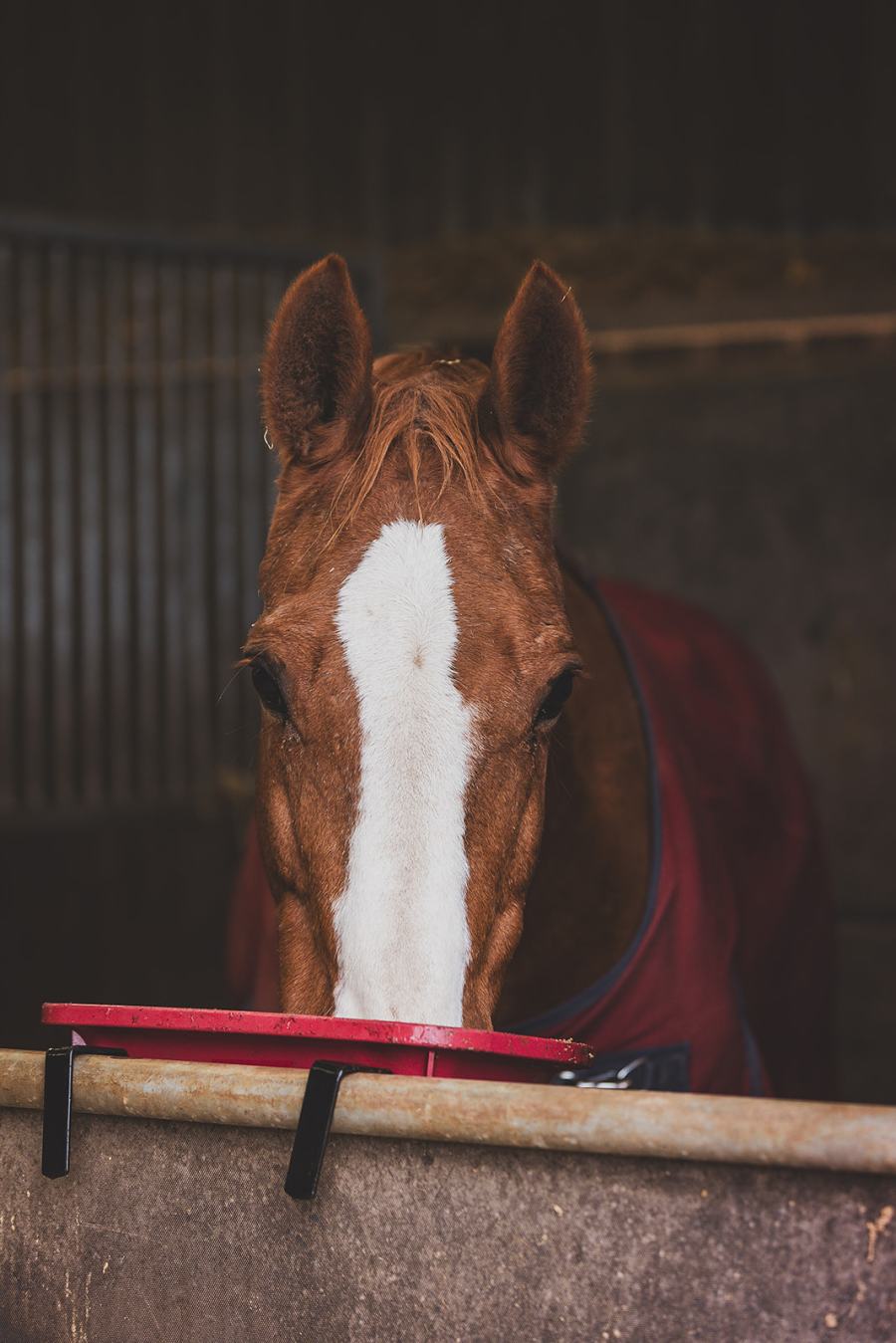Advertisement feature
Knowledge is power when it comes to caring for our horses, and improved veterinary care and nutrition is helping equines to live healthier and more active lives for longer.
The horse’s hindgut is home to trillions of tiny microbes including bacteria, viruses and fungi, which are essential for fibre digestion and helping regulate the immune system.
Research (Dougal et al 2014; Morrison et al 2018) in healthy horses found a reduction in the diversity of hindgut microbes was associated with age.
Interestingly, no reduction in diversity was seen when this research was repeated in similarly aged ponies. Although the reasons for this are not yet clear, these findings may suggest that ponies ‘age later’ than horses.
Digestibility
Have you ever wondered whether ageing affects the horse’s ability to digest nutrients?
Several studies (Elzinga et al 2014, 2017; Morrison et al 2018) have shown that in healthy horses fed appropriate amounts of forage, simply being senior doesn’t affect protein, fibre or mineral digestibility.
However, senior horses should still be fed plenty of good quality protein to help support their muscles — and it is unlikely that suitable amounts of protein, vitamins and minerals will be achieved in the diet by feeding forage alone.
Obesity and immune health
Obesity carries a host of health and welfare risks for any horse, but it may have additional consequences for senior horses.
One is exacerbating ‘inflamm-aging’, a term used to describe chronic low-grade inflammation that occurs in association with ageing.
In one study (Adams et all 2008), a reduction in fat and bodyweight in senior horses resulted in reduced levels of inflammatory cytokines (molecules that promote inflammation) in the blood, while increased weight and fat had the opposite effect.
Laminitis risk
Many horses and ponies with pituitary pars intermedia dysfunction (PPID: also known as Cushing’s syndrome) are insulin dysregulated, which puts them at an increased risk of laminitis.
In fact, laminitis associated with a high concentration of insulin in the blood (hyperinsulinemia) is now thought to be the most common form of laminitis in the UK.
Pergolide mesylate is the most common drug used to treat Cushing’s, and it has been shown to effectively manage some of the main associated clinical signs.
New research published by The University of Melbourne in collaboration with Spillers suggests that pergolide may limit the amount of insulin produced in response to eating in horses and ponies who have Cushing’s in addition to insulin dysregulation.
This, in turn, may help to reduce their risk of laminitis.
Starch and sugar
Two studies (Jacob et al 2017; Rapson et al 2018) found that even healthy senior horses can have an increased insulin response to eating a meal that is high in starch or sugar.
This suggests that restricting starch and sugar intake may be beneficial for all senior horses, regardless of whether or not they have Cushing’s or a history of laminitis.
Restricting starch also helps to support digestive health and lowers the risk of unwanted excitability in your horse.

Travelling stress
Even short journeys for horses who are used to travelling can lead to stress.
While the owner may not notice any changes in the horse’s behaviour, it may still have an effect on their immune system or metabolism.
Recent research found that travelling can increase concentrations of insulin and the hormone adrenocorticotropin (ACTH) in the blood, especially in senior horses.
This could potentially lead to a misdiagnosis of insulin dysregulation or Cushing’s.
Time to retire?
In 2023, researchers in the US (Herbst et al 2023) published results of a survey completed by more than 2,700 owners and carers of senior horses aged 15 years and over.
The survey shed light on the reasons why senior horses may be retired.
Key findings included:
- Most horses (62%) were retired between 15 and 24 years of age with health problems given as the main reasons.
- Veterinary-diagnosed laminitis, lameness and degenerative suspensory ligament desmitis had higher odds of retirement compared to horses who didn’t have these conditions.
- Around one in six horses had muscle wastage, which owners felt affected their horse’s welfare and ability to work.
- Age, sex, osteoarthritis, laminitis, Cushing’s and being retired were identified as risk factors for muscle wastage.
In a follow-up study carried out by the same researchers (Herbst et al 2024), it found that only 36% of owners and carers reported their horse or pony to be free from veterinary-diagnosed illness.
Osteoarthritis (30%), dental issues (15%), lameness (14%) and Cushing’s (12%) were found to be the most commonly reported health issues.
Muscle scoring
While some degree of muscle wastage may occur with ageing, it can also be caused by a lack of exercise, malnutrition, injury, poor saddle fit, some forms of tying up and certain other conditions.
Muscle wastage can affect health and welfare in a number of ways, including a reduced ability to work or even simply getting up after lying down.
In 2022, researchers (Herbst et al) published a system for scoring muscle atrophy or ‘wastage’ in horses in the neck, back and hindquarters.
There is a version of this muscle scoring tool on the SPILLERS website.
It is possible for a horse to have a high level of body fat but low muscle mass, and vice versa.
You should contact your vet if you notice that your horse has lost muscle, especially if it is sudden or severe.
Don’t assume that muscle wastage is just a part of the ageing process, as it may be due to something that can be treated or addressed, such as saddle fit.
Super Seniors’ Club
Spillers, together with collaborators around the world, has been conducting senior horse research for more than 20 years as part of its ongoing mission to help senior horses live happier, healthier and more active lives for longer.
We understand the special place older horses hold in equestrians’ hearts, which is why we created the Spillers’ Super Seniors’ Club — a supportive community for horse owners who share the same passion for keeping their senior horses happy and healthy.
Join the Spillers’ Super Seniors Club here
*Full references available on request. Images © Spillers







